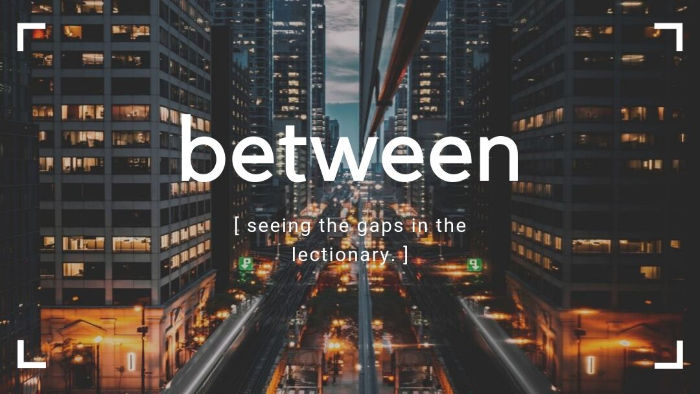
A look at the gaps in the lectionary.
This week: the gap between Proper 21A and 22A
The text: None (last week)
While there is no gap between last week’s gospel reading and this week’s, the context becomes even more essential!
Even if we treated last week’s gospel like a simple question of authority (something I strongly suggested we not do), everything behind that question is crescendoing into this week’s gospel.
Go back to last week’s between to catch up.
The progression is simple.
Jesus offers a message that is consistent with traditional theology, but occasionally steers away from their practice. This rubs the leaders the wrong way.
In short, Jesus comes off as a challenge to their authority.
Long before Jesus directly challenges their authority, they put themselves in an oppositional place against him. Not because they are slaves to the modern political binary, but because they see him as existentially threatening.
Of course, this idea is quite similar to the political binary today. Much of it is built a strident either/or worldview in principle, of course. But its gross activity is often fueled, not by maintaining order for the sake of order, but in response to perceived threat (e.g., “if you’re not with us, you’re against us.”).
The pursuit of revealing Jesus coincides with the desire to kill him. They want to kill his mission. So that requires the killing of his message and the man. The inevitability, then, of naming him a heretic and convincing Rome to execute him, is obvious from the middle of the narrative.
When Jesus enters Jerusalem, our sense is not so much if, but when.
From Confronted to Confronting
The transition for us this week is to move from Jesus being confronted by Temple leaders seeking to undermine his authority to his confronting them.
It is a delicious turnabout that connects with the darkness in our hearts like a good revenge fantasy. Especially when so fully removed from its context.
Context, however, tempers this from comeuppance to simple revelation. It is the Scooby-Doo unmasking; not retaliatory, but declaration of the innocent and the guilty.
The dark edge in Matthew’s Jerusalem teachings are particularly tricky for the reader. Especially as we might indulge the darkness with joy, rather than faith and hope.
